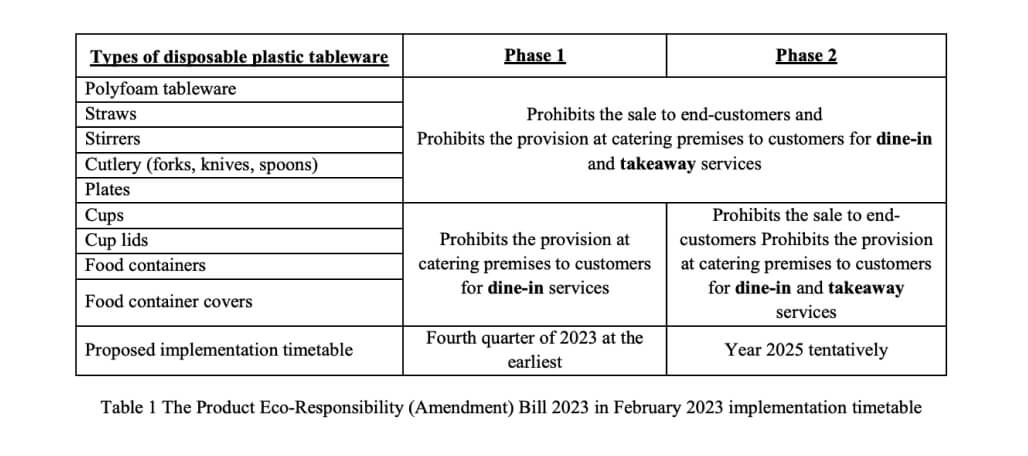Like other countries, the plastic waste problem is also severe in Hong Kong. Around 2,300 tonnes of waste plastics were disposed of daily at landfills in 2021, accounting for about 21% of total municipal solid waste, and had increased by around 37% since 2008. Of all the waste plastics, plastic/polyfoam tableware constitutes about 10%2. In other words, around 230 tonnes (equivalent to the weight of 19 double-decker buses) of plastics tableware, which were used only once, were disposed of in the landfill each day.
For this reason, the Hong Kong Environmental Protection Department conducted a two-month public consultation on the Scheme on Regulation of Disposable Plastic Tableware on 9 July 2021. Among the 8,552 submissions received, over 90% supported in principle the introduction of legislation to regulate disposable plastic tableware progressively in Hong Kong2 , which clearly showed consent among general public on this topic. Hong Kong Government then submitted the Product Eco-Responsibility (Amendment) Bill 2023 in February 2023 to Legislative Council to propose regulating nine types of disposable plastic tableware, including expanded polystyrene (EPS) tableware, straws, stirrers, cutlery, plates, cups, cup lids, food containers, and food container covers, in two phases. (Table 1)

Lorem ipsum dolor sit amet, consectetur adipiscing elit, sed do eiusmod tempor incididunt ut labore et dolore magna aliqua.




